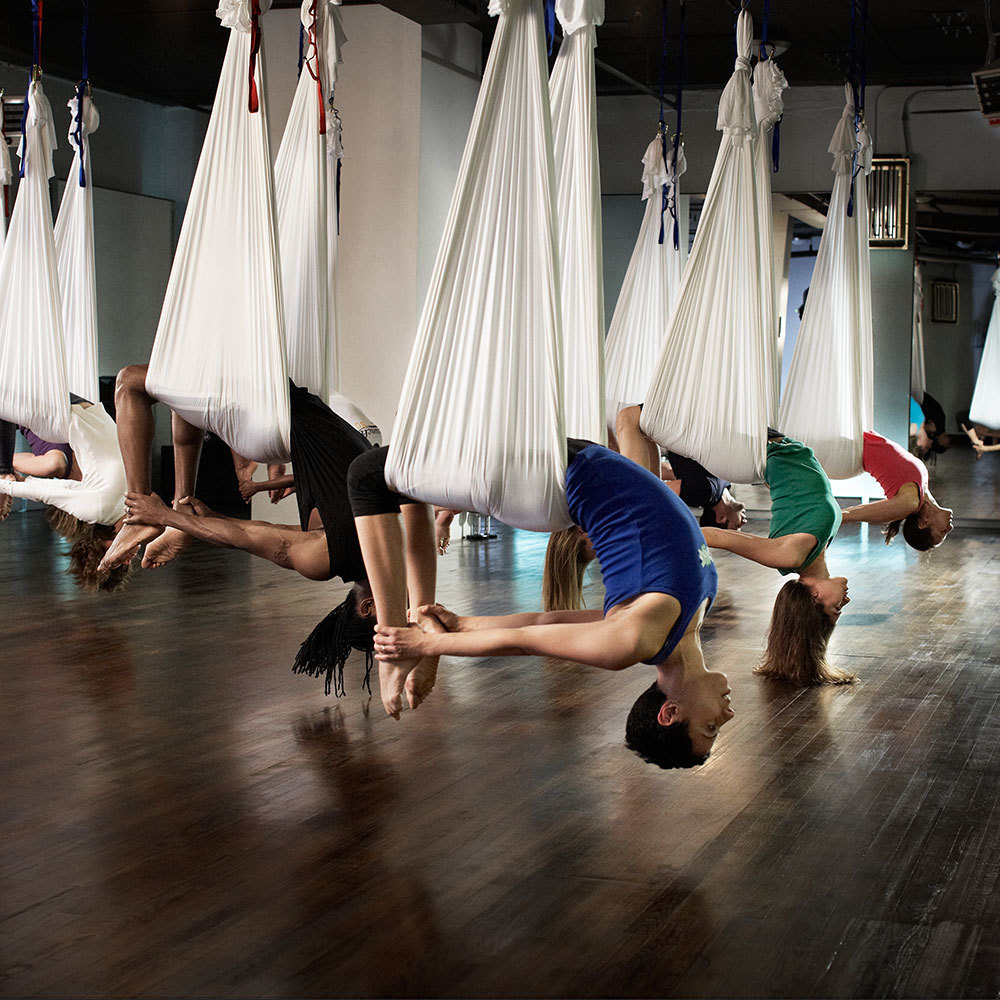 We’ve all been there. As the clock inches towards our allotted exercise time, our bodies start slowing down from lethargy and the thought of movement seems impossible. A mysterious weariness settles into your muscles even though the only thing you’ve done all day is binge-watch standup comedy on Netflix. You don’t want to disappoint your coach but you’d also rather just take a nap so your mind goes into overdrive thinking of plausible excuses to give them.
We’ve all been there. As the clock inches towards our allotted exercise time, our bodies start slowing down from lethargy and the thought of movement seems impossible. A mysterious weariness settles into your muscles even though the only thing you’ve done all day is binge-watch standup comedy on Netflix. You don’t want to disappoint your coach but you’d also rather just take a nap so your mind goes into overdrive thinking of plausible excuses to give them.
An effective movement regime requires consistency and routine. This is easier said than done, however. Even the most motivated of us sometimes find our exercise routine fall by the wayside. We have other responsibilities and in the general stress of life, it’s only natural for it to seem like too much effort to keep up with the gym.
There’s a few simple changes we can apply to how we approach our exercise regime. These can drastically improve our chances of getting a workout done. Showing up, after all, is at least half the work when it comes to a consistent movement practice.
1. Replace motivation with discipline
We often fall into the trap of relying on our motivation to get a task done. How often have you said to yourself, “I just don’t feel motivated enough to go for a run today?” The fallacy in this is that motivation is a feeling and, like any feeling, it ebbs and flows. Sometimes you’ll have motivation in abundance, sometimes it will go off on a long holiday to Spain and you’ll be left feeling, well… unmotivated.
Consistency in exercise is about enforcing self-discipline. It’s when we’re feeling unmotivated that the work actually starts. Changing this inner narrative that revolves around motivation and replacing it with discipline helps us recognize the value of forcing ourselves to go the gym when we don’t feel like. Eventually, showing up consistently and for long enough will help turn exercise into a habit. In this case, not only will you not need motivation, there will also be less of a need to enforce self-discipline. Because movement will be something that’s inherent to your life, you’ll feel much less resistance towards it.
2. Remove obstacles to exercise
Ok so you got a good’s night sleep, you wake up in the morning just in time for the gym. You force yourself out of bed and begin dressing, only just half awake. Reaching into your dresser for your trainer your bra, you find that it’s nowhere to be found. Annoyed, you rummage in your wardrobe, half-heartedly look in the dirty clothes, then you give up, get back into bed and doze off for a few more blissful hours of sleep.

Lay out your workout clothes in advance to make it easier on yourself to show up
Removing obstacles simply means preparing in advance. Making it less work for you to get to the gym will greatly improve your ability to do so. If you work out first thing in the morning, lay out those workout clothes so all you have to do is put them on and get going when you wake up. If you work out after the office, take a gym bag to work so you cut out the chances of coming home and deciding you’re too tired to exercise. Working out at home? Even better! Have your equipment set up and ready to go well in advance of your allotted exercise time. If you’re going to be home all day, put on your workout clothes as soon as you wake up so all you have to do is start moving when the time comes.
This is ultimately about being kind to yourself. You know a part of you is going to feel lazy when the time to workout comes around. Why not make it easier for this part to get to the gym by getting some of the prep work done beforehand?
3. Get someone to hold you accountable
Whether it’s hiring a coach or convincing a friend to exercise with us, we’re always more likely to show up if we’re accountable to someone other than ourselves. If we know there’s someone waiting for us, someone who’ll tell us to cut the BS when we try to make excuses, we’ll think twice before making those excuses. There’s lots of way to create this accountability for yourself. Even if you can’t find a workout partner, you can ask a friend to check in with you to ask if you’ve done your exercising for the day. Tell a trusted work colleague to encourage you to go to the gym after work. If you’re in therapy, see if you can create a system of accountability with your therapist.

Workout with a friend who’ll hold you accountable
It’s important to find the right person and the right balance so that we don’t end up feeling judged or resenting the person holding you accountability. Just remember, if you do have someone holding you accountable, they’re doing it out of care for you so don’t get annoyed and be honest with them.
4. Have fun
Sometimes, when we’re doing the same thing for too long, we just get plain bored. Some people are happy enough doing their squats and bicep curls. Other people need variety. If you’re the latter, try to change up your routine once in a while. Take a Zumba class, go swimming, enroll in aerial yoga. Just remember, whatever you end up doing, your programming shouldn’t be too all over the place and needs to be oriented towards your goals. However, ultimately whatever exercise you do will make you stronger in some way, as long as you do it right. So don’t get too caught up in following a strict regime and go ahead and have some fun with it.

Explore new movement practices to make exercising fun for yourself
5. Just show up
Sometimes, no matter what we do, we just don’t feel like exercising. In these situations, it might help to not try to make yourself exercise at all. Even if your self-discipline is dwindling, you can call on whatever little bit you have and enforce it to simply put on your trainers. Once your trainers are on, you can compromise with yourself and simply drive to the gym. If you don’t feel like working out when you get there, you can always come home after all. But once you’re at the gym, you might as well do at least one set from your programming. If you don’t feel like doing the rest, you can just stop and go get a smoothie.
Breaking down the task into each step without worrying about the whole empowers us to take the step that we are immediately faced with. If we don’t pressurize ourselves into getting all the sets done, chances are we actually will end up doing everything we’re supposed to.
6. Rest

Rest when your body tells you to
Our bodies are intuitive machines. What we mistake for laziness sometimes is our body telling us that it needs a break. Consistency is as much about honoring your desire to rest as it is about convincing yourself to show up. So if your muscles are sore and you absolutely can’t imagine getting to the gym, evaluate. Have you been exercising more than you have not been? If that’s the case then just rest. No amount of ab definition is worth driving ourselves too hard.





